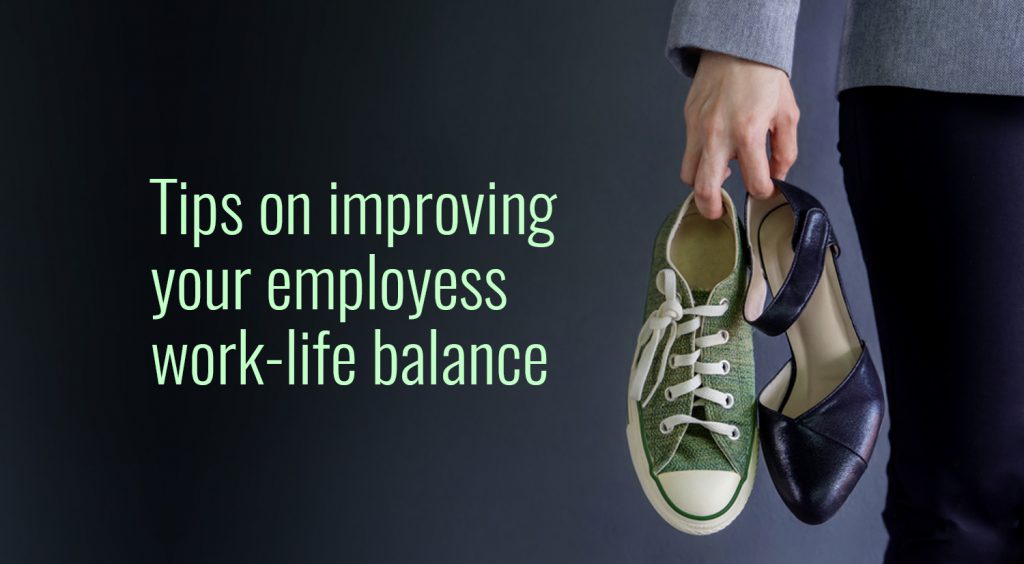It’s odd – we’re always talking about the healthy work-life balance and know that working long hours can lead to stress, anxiety, and depression. Yet, we continue to dedicate more and more time to our jobs. In fact, research shows that 80% of workers answer emails and return phone calls after hours.
For one, people believe long hours on the job to be proof of their work ethic. More than that, it has become common in our workplace culture to express how busy we are, using this as a medium to reinstate our importance within the workplace. But people around you will always remember the quality of your work over the number of hours you’ve put in.
And no matter how much we’d like to think there’s a direct correlation between hours worked and results produced, it might not actually be the case. Quite the contrary – doing overtime is found to lead to lower productivity.
A study by Ford Motor Company in the 1990s already showed that every additional 20 hours of work could only increase productivity temporarily before it plummets. Another research indicates that working more than 48 hours a week is associated with significant declines in productivity, more mistakes, and more mental health problems.
Clearly, doing overtime is not a sustainable way of working, and that’s why it’s time to rid ourselves of the always-on mentality. The key is not to add more working hours to your day but to increase efficiency during your working hours. But how can we achieve this?
Why We Fail to Leave Work at Work
Before we get to the HOW it’s equally important to understand the WHY – why is it so difficult to leave work on time, and more than that, why are we failing to sign off mentally? According to Joe Robinson, one of the reasons might be guilt.
The guilt we feel when we’re at home, and there’s more work to do, and the guilt we feel while working for not dedicating enough time to our loved ones. It’s a vicious circle and one that’s very difficult to break.
However, with a few little adjustments, you can turn things around, find the much needed healthy work-life balance, and be present in every single moment. To help you get started, we’ve put together a list of 10 helpful steps (+3 bonus tips) that have proven most effective in our experience.
1. Accept that work never ends
Despite all the apps and services making our lives easier, our to-do lists are longer and the number of tasks virtually endless. Think about it – when was the last time you were able to complete every single thing on your task list?
The reality is there will always be more work and new tasks. This means that even at your most efficient, it’s not realistic to complete everything before the end of the day. And laying these kinds of expectations on yourself only means you’re setting yourself up for failure. The sooner you accept this, the sooner you will rid yourself of the guilt.
It’s also easier to move past the guilt when you start seeing the bigger picture. Take control of your time, make a realistic and attainable project plan, and spread the tasks over an extended period.
2. Make a realistic plan
Instead of focusing on a single day at a time, it’s much better to set realistic goals for a longer period – either for a week or a month – and spread your work accordingly. This way, you will have a much clearer idea of deadlines, can easily assign priorities, confidently arrange your daily schedule, and leave the office feeling accomplished.
TIP 1. Make sure to block out some buffer time for ad-hoc problems or impromptu meetings and discussions that might come up. If nothing pops up, you can use that time to start working on your next projects or tasks and be ahead of things instead of constantly chasing after delayed projects.
3. Be your most efficient at work
People’s cognitive and emotional boundaries are much more complex than just an endless loop of producing more things faster. Thus, being mindful of your ‘active work times’ and planning days accordingly means you can optimize your efficiency and don’t have to worry about wasting your most productive time on small-impact tasks and meetings.
Read on: Should you manage your time or your energy?
TIP 2. There will be times with too many important things on your task list. Whether organizing an event or a high-stakes project, you might need to put in more working hours. But always stressing and dedicating every waking hour to these things will lead to burnouts.
Thus, even when you have to do some work off-hours, make sure it’s not the only thing on your mind. Instead, designate some time for that. Whether it’s half an hour after dinner or two hours before work (waking up early), don’t let these things take over your entire life. You need your rest!
4. Take advantage of technology
It’s difficult for most people to focus and not get distracted by everything happening around them. This is where technology can help out. There are so many different apps and tools that help you focus and be productive.
Apps like StayFocused and RescueTime are designed to eliminate any distractions by limiting access to certain domains or giving a weekly overview of your time spent on specific sites.
Read on: 14 Productivity Tools That Save Time and Energy
TIP 3. Another easy way to improve efficiency is to have everything in one single work management solution. Instead of shuffling between different apps and trying to put together a complete picture based on scattered data, you can quickly have a 360-degree view of your tasks.
5. Trust your team
Being able to trust your team is important. But it becomes essential when planning to take some time off. We know it might be challenging to let go of things when you’re away – fearing everything will fall apart. But most of the time, this isn’t the case – no one is irreplaceable, and nothing breaks when you take some time off.
The key to peace of mind is preparation – sharing enough information with people who will take over while you’re away. Write down all necessary information, such as deadlines or important stakeholder information. This way, you eliminate the need to reach out with every single request. If truly needed, set up means of contact in case of an emergency.
6. Establish boundaries – for yourself and others
We are all creatures of habit, and it’s easy to reach out when you need a quick answer. But there are official working hours for a reason. Even when your company allows flexibility, there are specific times during the workday that you can reach out to people. Which means outside of these hours, you should think twice before contacting them and not expect an answer before the next day.
Closely related, responding to messages or emails in odd hours might make other people in your team feel like they’re expected to be always on as well. Be mindful of your team members and put in place a communication plan. This way, you can take time off without the urge to check your emails after hours, and more importantly, you allow others to do the same.
7. Choose a designated area for work
It’s much easier to establish a designated place for work when doing so from the office. Which also means it’s easier to forget about work when not working. But what about those who are working remotely?
In case you’re working from home, make sure you have one area/room that is your work zone. Don’t allow yourself to work from anywhere, for example, the couch or even worse – your bed. Even when you live in a small studio flat, make sure you have a designated area, you can ‘leave’ when you are done working.
8. Use your commute to offload
Most of us have to commute to and from work every day. It can be tedious, but you can also use this time to forget about work for the evening. Thus, instead of trying to frantically answer some more work emails or worry about the things on your to-do list, use this time to clear your head by listening to a podcast or reading a book.
9. Plan your after-work activities
If you have no plans after work, it’s easy to continue to think about work. Even when you make a promise not to do so. According to Harvard Business Review, the reason many people fail to change their behavior is that they focus on what they are not going to do rather than on actions they will take instead.
Instead, put together a plan of things you want to do – either a workout, online course, or family time.
10. Don’t let technology distract you
One of the earlier points we made was about taking advantage of technology and utilizing it to be more focused and productive. And now we’re saying the opposite – eliminate distractions. Although it might be contradicting, it actually makes sense – there’s time and place for everything.
While working, technology (if used in the right way) can be very beneficial, but once you’re done for the day, it’s important to be mindful of anything that could disrupt your personal time.
It’s a good practice to keep your work and personal things in separate devices. Don’t have everything in one place, such as work email in your personal computer or Slack on your phone, because you are bound to check when you hear a new message coming through.
What if your company requires you to be accessible via email on your phone? Then try to set a designated time frame for checking email and be selective – only reply to messages that need an immediate response.
Conclusion
Although reasons vary, the majority of us are guilty of working after hours from time-to-time. And even if you enjoy your job and work long hours voluntarily, you are more likely to make mistakes when you’re tired. Therefore, finding the right work-life balance is truly crucial. Hopefully, following these steps, you will be able to find the right balance and forget about work when not working.



